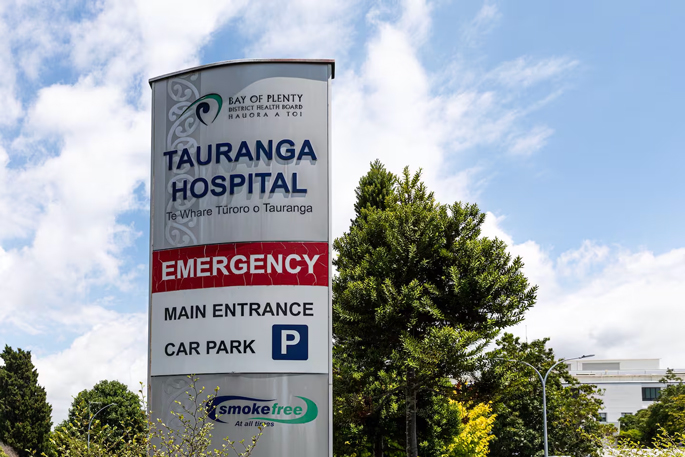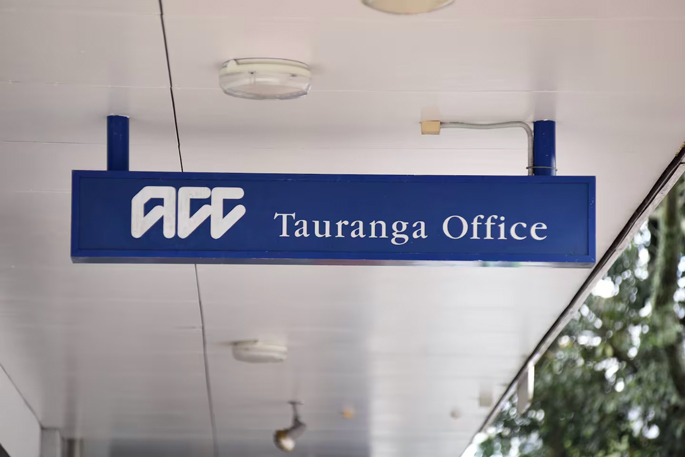A Bay of Plenty retiree is in a “hell of a fight” with the Accident Compensation Corporation (ACC) for compensation after his terminal cancer diagnosis was delayed by 19 months.
Brian – who did not want his surname used for medical and privacy reasons – said he had been “fighting” ACC for a year and a half after confirmation his Stage 3 cancer had metastasised and moved into Stage 4.
He said he was diagnosed with the “rare condition of male breast cancer” in 2018 and went into remission after treatment.
Brian sought help at Tauranga Hospital for groin pain several times from 2020 onwards, but it was not until 2023 that a scan confirmed the cancer had spread to his pelvic bone.
ACC received a claim from Tauranga Hospital for treatment injury in May 2023.
Since then, “I’ve had one hell of a fight with ACC”, Brian said.
He was initially declined cover but appealed, and in November last year ACC offered him $19,732 after assessing the degree of his impairment at 29%.
Brian refused it and appealed the calculation, believing he should get the highest possible amount of $173,180 for an 80% impairment.
“My life is terminal – [I have] Stage 4 cancer now.”
ACC said 29% was appropriate to cover the injury from the delayed identification of the cancer spreading. Any impairment from the pre-existing cancer was not covered.
The scheme covered injuries from accidents, not illness.
One in five chance of surviving longer than five years
Brian said he had a mastectomy and chemotherapy to treat the breast cancer diagnosed in 2018, and was told he was in five-year remission.
His groin pains started in 2020 but, despite him seeking medical help several times, doctors did not identify the cause until a March 2023 CT-PET scan confirmed he had metastatic Stage 4 terminal cancer.
He said medication was “keeping me alive”, but if it stops working he may have to try another medication or move into palliative care.
 Brian found out he had Stage 4 terminal metastatic cancer at Tauranga Hospital in March 2023. Photo / Mead Norton
Brian found out he had Stage 4 terminal metastatic cancer at Tauranga Hospital in March 2023. Photo / Mead Norton
Brian said he was told he had a one in five chance of surviving for longer than five years.
“Two years of that has been [spent] fighting ACC.”
His oncologist filed a claim to ACC in May 2023 and an independent doctor submitted Brian’s impairment assessment in November last year.
It said he had presented to the emergency department several times from October 2020.
The doctor said CT and MRI scans were repeated during his 29 months of symptoms, despite being negative, meaning opportunities to try different tests were missed.
It gave the date of injury as July 22, 2021 for “disease progression of bone metastases” and a delay in diagnosis of 19 months.
Brian described the doctor’s assessment of his impairment at 29% as an “insult”.
Impairment guide ‘unsuitable’
Brian said an American Medical Association impairment guide used to calculate the percentage was, in his view, “entirely unsuitable” for cancer patients.
The impairment was converted using an ACC percentage table, which determined how much money a patient received.
Brian questioned how his had been calculated when he had ”never actually got to sit in front of anybody at ACC”.
 The ACC branch in Tauranga. Photo / George Novak
The ACC branch in Tauranga. Photo / George Novak
He also wanted ACC to have a “fast-tracked” method – assessed by cancer specialists – for cancer patients to get compensation.
Brian, who lived alone, said he was “slowing down”. He was in “constant pain” and often felt fatigued.
“I used to go for a walk. Now I don’t because it hurts so much.”
He said he did not have health or life insurance.
He asked ACC last month to review its decision and also wrote to Tauranga MP Sam Uffindell, who he said had been “extremely supportive”.
Brian complained to the ombudsman but it declined to investigate the system “on the basis of one complaint”.
ACC, Health NZ respond
ACC deputy chief executive of service delivery Michael Frampton acknowledged the “devastating impact” Brian’s diagnosis and treatment failure had on him and his loved ones.
Brian’s claim was accepted in November “for the progression of his disease from the point at which it could have been first diagnosed in July 2021″, Frampton said.
Frampton said an urgent permanent injury compensation assessment found while Brian had an 80% whole-person impairment, only 29% of this was due to the covered disease progression.
The remaining 51% was due to the pre-existing cancer, he said. A peer review agreed with the calculation.
Frampton confirmed Brian had requested a review of the calculation.
“[Brian] continues to have cover and support from ACC, and we’ll work with him to provide any additional support as his needs change.”
Health New Zealand – Te Whatu Ora Bay of Plenty group director of operations Pauline McGrath said it acknowledged Brian’s experience and the “deep impact” a cancer diagnosis can have on patients and their whānau.
Health NZ had engaged with Brian about the care provided throughout his diagnosis and treatment journey, McGrath said.
Brian’s oncologist submitted an ACC claim for treatment injury on his behalf and had continued to support him throughout this process, she said.
ACC Minister Andrew Bayly last week announced independent reviews of ACC’s operational performance, investment strategy, and management of the $50 billion it invests. Final reports are expected by June.



2 comments
Revamp
Posted on 20-02-2025 10:19 | By Angels
ACC is well know for their poor attitude etc. you cannot challenge them as they think they are gods.
Try to talk to someone to get a straight answer ,your kidding yourself
Go to a lawyer and they tell you , to try but the chances of any positive coming from it is extremely low. The honest ones tell you not to waste your money.
Government needs to have a HUGE overhaul of acc.
Started already with medsafe
Next acc
Wheelchair
Posted on 21-02-2025 14:19 | By Lisanz
I had a delayed diagnosis accepted for cancer that has left me in a wheelchair. The payout I received was not even 80% and I had no pre existing cancer. In 3 months I made 15 visits to Doc asking for scans or mri and got nothing. I couldnt work I couldnt hardly walk and took a fall in the bathroom couldnt get up and ambulance was called it was the Ambulance officer who saw the mass on my back which turned out to be a 27 by 10cm tumor. My life is ruined I can't drive need help with personal cares and meals cooked. Always in pain, can't sleep a full night had to sell a business as I could no longer do it. Spent 4 months in rehab after being told I wouldnt walk again. I can walk a very limited distance. It didn't make 80% goodluck.
Leave a Comment
You must be logged in to make a comment.